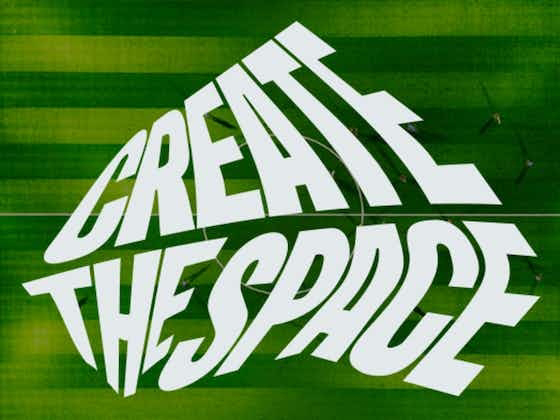Mental health is always a topic that when I write about, always generates significantly more traction than that of pieces focused purely around football. For me though, the two are and always will be intertwined.
Football has always been something that I've obsessed over more than anything else in my life. It isn't just the love of the game, it is the community that it brings about that can, in my view, be life-saving. There have been more times than I care to admit that it's saved me from myself and pushed me in a positive direction. It is something that I will forever have an enormous debt of gratitude towards. But to the unindocturated, it no doubt will seem like I am overselling its impact, and maybe they are right to an extent. But football does for me and my sanity what music, TV and film probably does to others.
Footballers are often touted as role models, but this is normally for their behaviour and charity work. However, footballers can be role models without even meaning to be. Recently, we've seen an increase in the number of footballers highlighting their struggles with mental health. Most noticeably, Lyle Foster of Burnley was recently forced to have some time out of the game due to a reoccurrence of a mental health issue. The club were supportive and open regarding this, and it helped to normalise a stigma that so many of us go through on a daily basis. Meanwhile, Jordan Ibe made his return to competitive football for National League side Ebbsfleet United on Saturday following a spell of significant depression and personal struggle. The outpouring of support for him from supporters and media alike genuinely felt heartwarming.
In November, it was great to see Beth Mead and Ben Chilwell of Arsenal Women and Chelsea respectively using their voice and platform to help launch the initiative 'Create The Space'. The movement is designed to help support those with mental health struggles at all levels of the sport. There is a clear desire to advance the treatment and support available for those struggling with mental health issues. Both Mead and Chilwell opened up extensively about their individual struggles during spells on the sideline but showed again how powerful voices within the professional game can be.
Now the personal bit. Those that know me well will know that I've had a turbulent few months and I have had to take time away from my working life to focus on my recovery. We live in a society where it is incredibly difficult to get back on your feet following such a significant blip, and that is something I am experiencing now. To help me, I often look for inspiration from within football to overcome hurdles that have been placed infront of me.
Stories like that of Lyle Foster and Jordan Ibe are of course a tragedy in the sense that someone has had to experience the mental trauma that they have, but they can also be inspiring. They've both managed to fight back in their respective careers and demonstrate that things can change. There will of course always be the critics and naysayers who dismiss their struggles on the basis that they are rich and famous and on the face of it, have nothing to be sad about, but this is such an archaic view.
I scrolled through some of the comments of TNT Sport's post about Jordan Ibe's return and was pleased to see so many people comment in support of the former Liverpool and Bournemouth winger. However, the posts that really jumprd out were from people dismissing the challenges that Ibe has faced. One brave supporter commented that they know how hard it can be and that it can stop them from even getting out of bed. The first response? Attention seeking. Fortunately, many were quick to rally in defence of the individual in question. There will always be morons, but hopefully the good will always outweigh the bad.
Mental health is not selective, it can literally impact anyone at anytime. But the more that people of all walks of life talk about it and the impact that it has, the more we will all be able to support one another.



Comments
Post a Comment